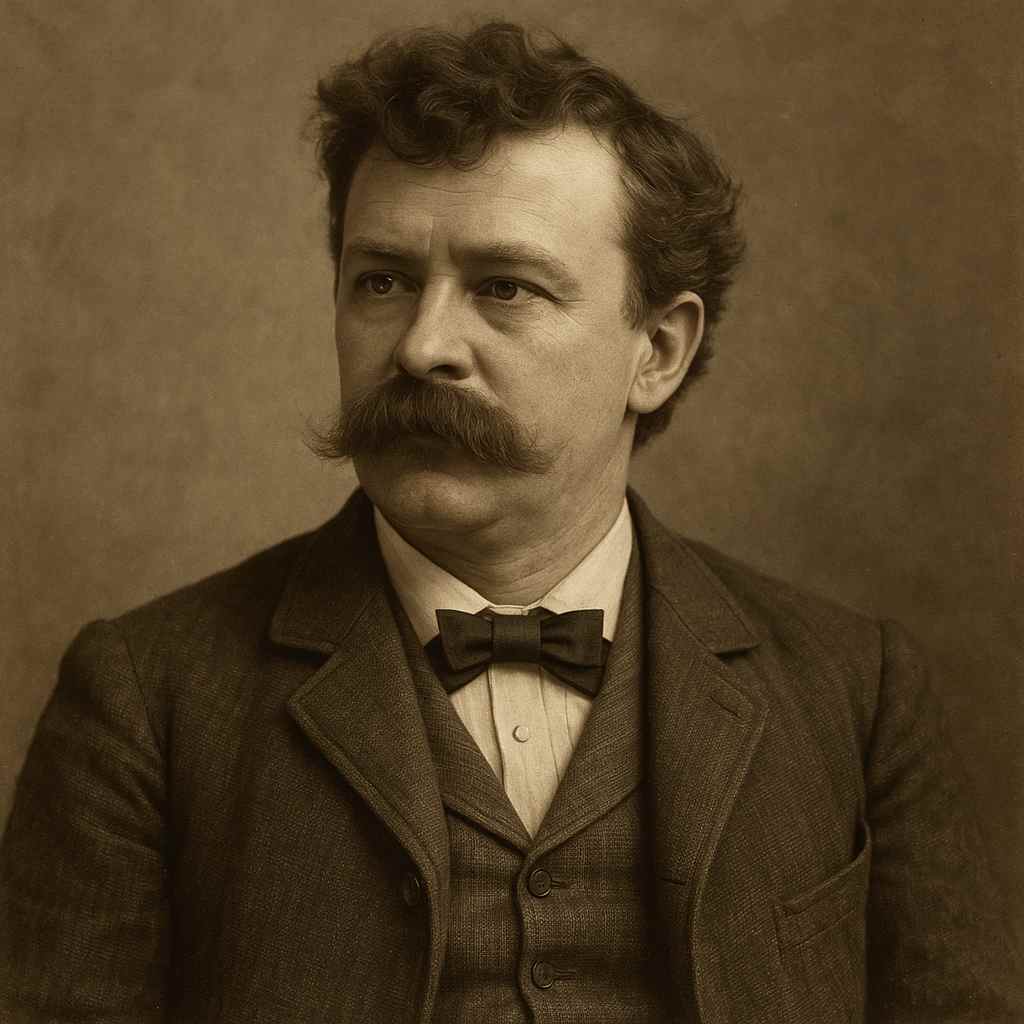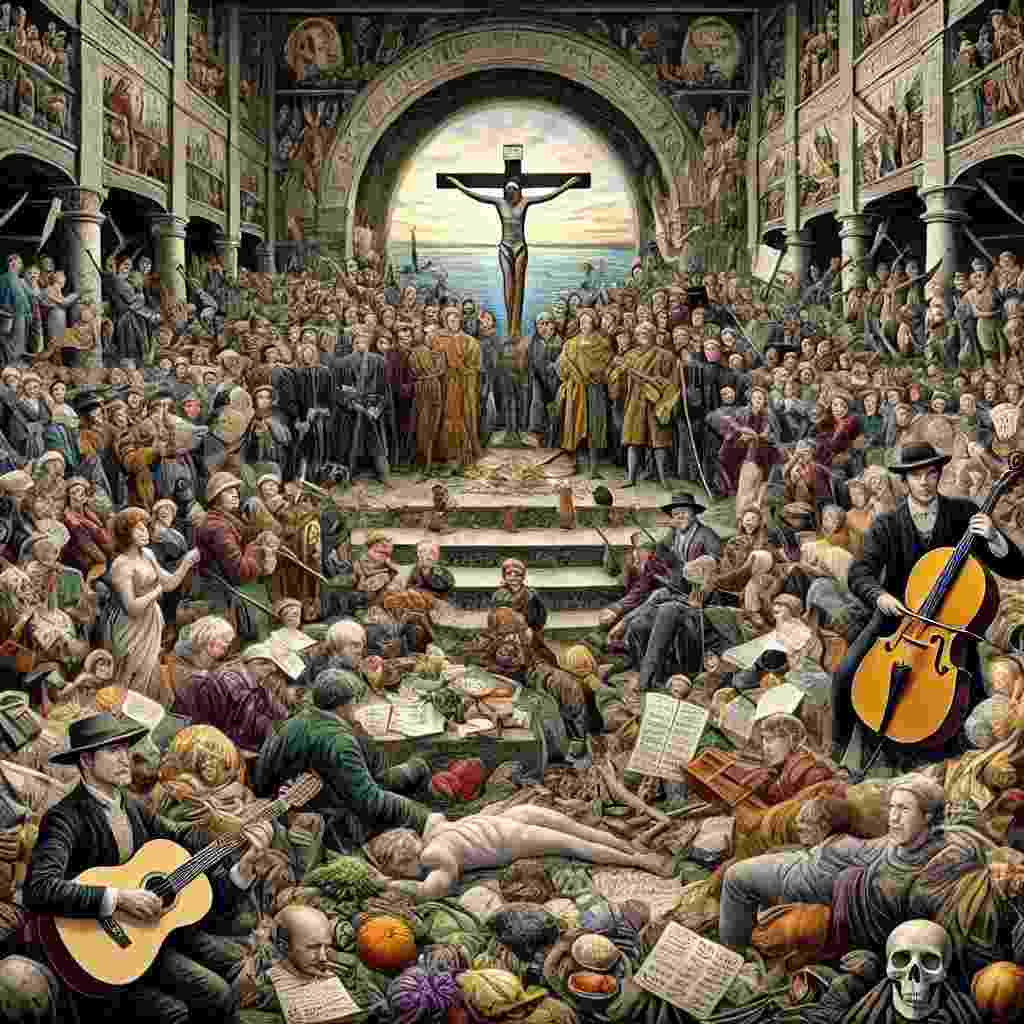1 Poems by Ben King
1857 - 1894
Ben King Biography
Ben King, a relatively unsung figure in the landscape of American poetry, offers a fascinating study of wit, humor, and pathos in verse. His works, though often overshadowed by the more canonical names of the late 19th and early 20th centuries, resonate with a charm that combines the folksy spirit of the Midwest with a universal appeal. King’s life, while relatively short, was marked by an unyielding commitment to humor and a keen sensitivity to the human condition, elements that became the hallmarks of his poetic voice.
Born Benjamin Franklin King Jr. on March 17, 1857, in St. Joseph, Michigan, King grew up in a region rich with the rustic beauty of America’s heartland. His formative years were spent amidst the natural splendor of the Great Lakes region, which imbued his work with a strong sense of place and a warm, earthy tone. Unlike many of his poetic contemporaries, King did not pursue formal higher education in the arts or literature. Instead, he forged a more self-taught path, a fact that colored his voice with an unpretentious authenticity.
King’s early career was not steeped in the literary world. He worked as a traveling salesman and later became a bank clerk, occupations far removed from the poetic sphere. However, these roles offered him a unique vantage point on human nature. He absorbed the quirks, eccentricities, and struggles of everyday people—material that would later animate his poetry. His innate sense of humor, coupled with an ear for vernacular speech, allowed him to capture the essence of ordinary life in a manner that was both accessible and profound.
King’s foray into writing began as a pastime rather than a vocation. His early verses were often humorous, aligning with the growing popularity of dialect poetry in the United States during the late 19th century. Figures such as James Whitcomb Riley and Eugene Field were shaping a new wave of American literature that celebrated regional speech and everyday experiences, a trend that King naturally aligned with. However, unlike Riley’s sentimental idealization or Field’s nursery-rhyme simplicity, King’s humor often bore a sharper edge, tinged with irony and subtle critique.
His first significant recognition as a poet came not through the publication of a collection but through public recitations. King was a gifted orator with a natural flair for performance. His readings were characterized by their engaging delivery, blending humor with an undercurrent of poignancy that left a lasting impression on his audiences. This performative aspect of his work underscores the oral tradition that informed much of his poetry, making his verses as much a communal experience as a personal one.
King’s signature style can best be described as a blend of light verse and satire, often laced with self-deprecation and a playful engagement with literary conventions. He delighted in poking fun at human foibles and societal pretensions, yet his humor never descended into cruelty. Instead, it was tempered by a deep empathy that revealed his genuine affection for his subjects. This balance of wit and warmth is exemplified in works such as “If I Should Die Tonight,” a poem that juxtaposes its somber title with a comedic meditation on how people would react to the speaker’s sudden demise. The poem’s exaggerated scenarios and humorous tone highlight King’s mastery of irony and his ability to deflate solemnity without undermining genuine emotion.
Despite his focus on humor, King was not averse to exploring more serious themes. Beneath the playful surface of much of his work lies a thread of existential reflection. His poems often touch on the fleeting nature of life and the inevitability of change, themes that resonate with a universal poignancy. This duality—humor paired with melancholy—places King in a unique position within American literary tradition, bridging the gap between light verse and deeper philosophical inquiry.
King’s literary output, though not voluminous, was impactful. His poems were widely circulated in newspapers and magazines, a testament to their accessibility and broad appeal. His verse found an appreciative audience among readers who valued its straightforwardness and relatability, qualities that set him apart from the more esoteric poets of his time. However, this same accessibility likely contributed to his marginalization within the academic canon, which often favors complexity and innovation over simplicity and popular appeal.
In addition to his poetry, King was also a skilled essayist and humorist. His prose writings, though less celebrated than his verse, reveal a sharp intellect and a keen observational eye. He wrote with an economy of language and a clarity of thought that made even his most humorous pieces carry an undercurrent of insight. His essays often dealt with the absurdities of modern life, blending humor with a gentle critique of societal norms.
King’s life was tragically cut short on April 7, 1894, when he died suddenly at the age of 37 in Bowling Green, Kentucky. His death was a shock to his friends and admirers, who mourned the loss of a singular voice in American literature. Despite his relatively brief career, King left behind a legacy that continues to charm and inspire readers. His collected works, published posthumously as Ben King’s Verse, serve as a testament to his enduring appeal. The collection captures the full range of his poetic abilities, from the lighthearted to the deeply reflective, and stands as a tribute to his unique vision.
In the years following his death, King’s reputation has remained somewhat underappreciated, overshadowed by his more famous contemporaries. However, his work has enjoyed periodic revivals, often championed by enthusiasts of American humor and regional literature. These revivals have highlighted the timeless quality of King’s observations and the universality of his themes.
Ben King occupies a distinctive niche in the American poetic tradition, blending humor with humanity in a way that resonates across generations. His work, though often categorized as light verse, defies simple classification, offering a depth and sincerity that elevate it beyond mere entertainment. King’s poetry reminds us of the power of laughter as a means of coping with life’s complexities and the importance of finding beauty in the everyday. In an era often marked by solemnity and strife, his voice remains a refreshing reminder of the enduring value of humor and compassion in art.
This text was generated by AI and is for reference only. Learn more
Username Information
No username is open
Unique usernames are free to use, but donations are always appreciated.
Quick Links
© 2024-2025 R.I.Chalmers (V2Melody).

All music on this site by R.I.Chalmers (V2Melody) is licensed under a Creative Commons Attribution-NonCommercial 4.0 International License.
Attribution Requirement:
When using this music, you must give appropriate credit by including the following statement (or equivalent) wherever the music is used or credited:
"Music by R.I.Chalmers (V2Melody) – https://v2melody.com"
Support My Work:
If you enjoy this music and would like to support future creations, donations are always welcome but never required.
Donate


